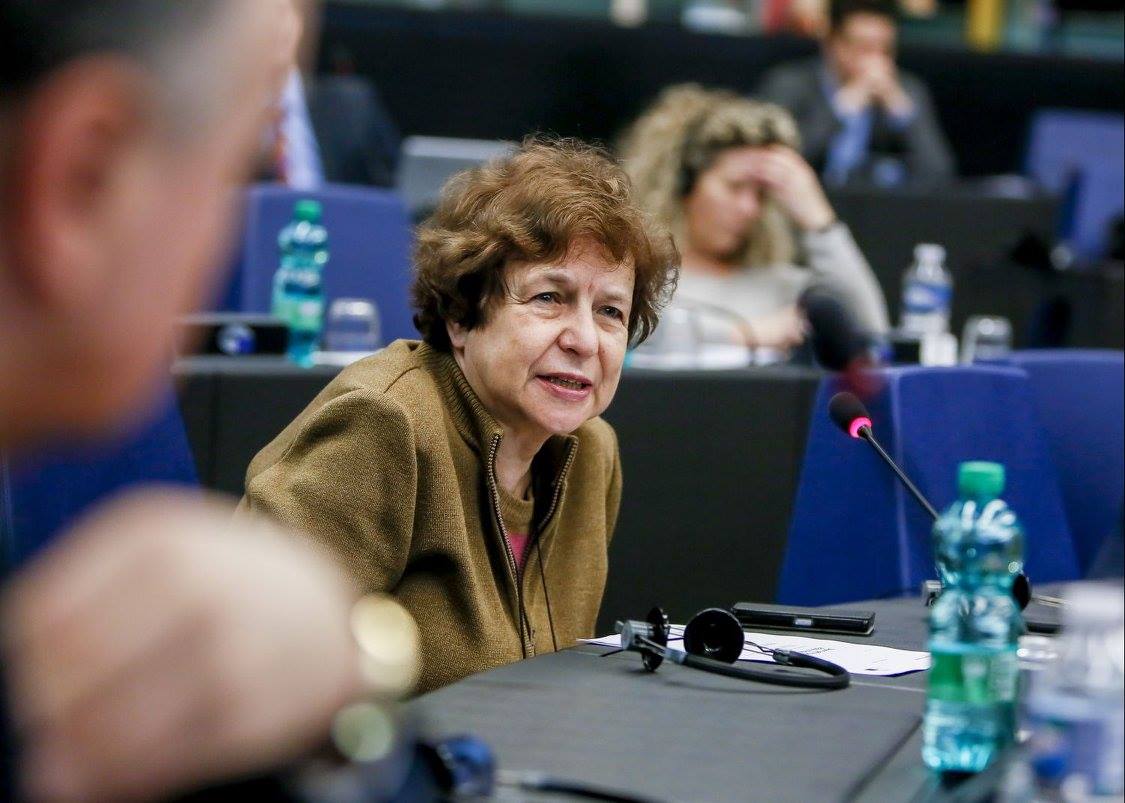The State Security Service yesterday executed search warrants at several residences associated with former European Parliament member Tatjana Zdanoka (Latvian Russian Union).
The Security Service confirmed to LETA that search warrants had been executed on Monday at two residences associated with Zdanoka, where the Security Service officers seized storage media, notes and documents, which are now being analyzed.
The searches are part of a criminal case against Zdanoka, which was launched to investigate Zdanoka’s suspected collaboration with Russian intelligence services, said the Security Service.
LETA has information that the search warrants were most likely executed because Zdanoka is no longer a MEP and has lost her parliamentary immunity.
LETA has been unable to get in touch with Zdanoka because her phone is switched off. According to unofficial information, Zdanoka is not currently residing in Latvia.
In mid-March, the Security Service said that it had started criminal proceedings against then MEP Zdanoka for alleged cooperation with Russian special services.
At the end of January, the Security Service told the media that it would assess information on Zdanoka’s possible collaboration with Russian intelligence agencies.
As reported, leaked emails reveal that Zdanoka regularly reported to the Russian Federal Security Service (FSB) about her activities and asked for money to organize events at least since 2004, but she denies cooperation with the Russian intelligence services and refers to her contacts as a youth friend, the Baltic Centre for Investigative Journalism Re:Baltica reported. The emails were leaked to the Russian investigative magazine The Insider, which shared the information with Re:Baltica, the Estonian portal Delfi and the Swedish newspaper Expressen.
In a statement to the media, Zdanoka did not deny the authenticity of the emails, but stressed that she considered it unacceptable to comment on the content of personal documents obtained by hacking. She also tried to link the media publication to her alleged “anti-fascist activities”.
“I would like to bring to public attention the fact that unauthorized hacking into personal emails is impermissible. These actions qualify as theft of personal data, which is a criminal offence in itself”, Zdanoka says in her statement, in which she claims that she has “not cooperated and does not cooperate with any other special services”.
At the end of January, the Security Service said that until 2016, assisting a foreign state or a foreign organization to take action against the Latvian state was not a criminal offense under Latvian legislation, therefore Zdanoka’s reported activities in the time period from 2005 to 2013 did not qualify as a crime.
Although in the assessment of the State Security Service such actions posed a threat to the Latvian state, on which the Security Service informed both state officials and decision-makers as well as the public, it was not possible to call such a person to account for such actions. According to its own assessment, the Security Service “implemented targeted counter-intelligence and operational measures to prevent the identified threats to national security”.
According to the Security Service’s assessment, Zdanoka’s status as a member of the European Parliament and the immunity provided by this status were significant factors facilitating her activities in support of Russia’s geopolitical interests.
In 2016, the State Security Service in cooperation with the Military Intelligence and Security Service and the Constitution Protection Bureau (SAB) proposed amending Latvian laws. One of the reasons prompting the Latvian security services to prose legislative amendments was the threat posed by Russia’s so-called compatriot policy and other forms of non-military influence, which was also supported by certain Latvian nationals.
As a result, substantial amendments to the Criminal Law came into effect in 2016, which among other things, criminalized helping a foreign country to take action against the Latvian state. At the same time, it should be noted that these amendments do not apply retroactively, the State Security Service said in a statement.
Source: BNS
(Reproduction of BNS information in mass media and other websites without written consent of BNS is prohibited.)


















